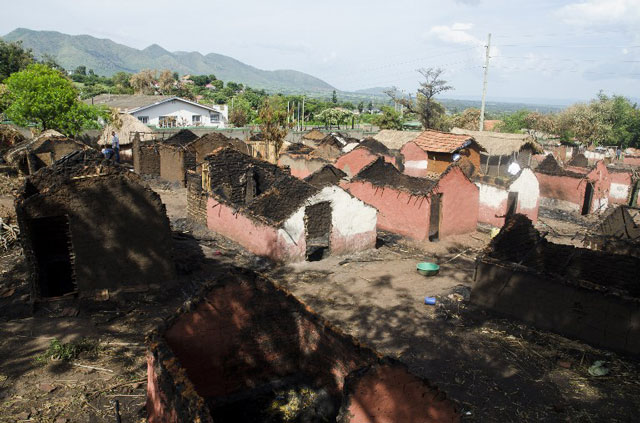
There is no evidence to back this falsehoods – Military spokesman Karemire
Kampala, Uganda | AFP | Human Rights Watch on Wednesday said 155 people, including 15 children, were killed in fierce fighting that erupted late last year in western Uganda between security forces and a tribal king’s palace guards.
The death toll was “far higher than the Ugandan authorities claimed at the time”, the US-based watchdog said in a statement.
But the report was dismissed by the Ugandan government, which said it contained “inconsistencies” and challenged the allegation that children were among the dead, putting the death toll at just over 100.
Statement by Uganda Media Centre ED Ofwono Opondo by The Independent Magazine on Scribd
HRW calculated its toll based on interviews with 95 relatives of victims, as well as with religious, security and administrative officials.
The clashes erupted in the western town of Kasese on November 26 and ended a day later when police stormed the palace of Rwenzururu King Charles Wesley Mumbere, who has been accused of commanding a militia with separatist ambitions.
Police said the violence started when a joint patrol of police and troops was attacked by the royal guards.
But HRW said it began when troops forced their way into a local administrative office, killing eight guards and sparking a wave of retaliatory violence, during which the palace guards used machetes to defend their turf.
It said the palace guards “often carry agricultural tools, such as machetes, but are not formally armed… and would not constitute an armed force or group under international humanitarian law.”
HRW said at least 55 people, including 14 police officers, were killed on November 26, while more than 100 others, among them 15 children, died the next day.
– ‘Deliberate’ omissions –
In a statement on Twitter, the US embassy in Uganda said it was “deeply troubled by the reported disproportionate use of force by security officials” in the raid.
“We are particularly concerned by reports that security forces made no effort to remove unarmed people from the compound, which may have contributed to the death of numerous children,” it added.
But government spokesman Ofwono Opondo challenged the report’s allegation that children were among the dead.
“As opposed to the HRW report that 16 children (sic) were killed during the operation, there is no evidence,” he said in a statement which put the death toll at 103, among them 12 women and 40 men, with another 51 bodies unclaimed.
He said the HRW investigation lacked “depth” and contained “several inconsistencies … that do not represent the true facts.”
“It deliberately misses out incidents that led to the near-breakdown of law and order,” he charged, accusing the rights group of ignoring the wider context of years of violence by the militia.
The report also “promotes violence in the region, referring to machetes as agricultural tools as opposed to Uganda penal code act defines them as lethal weapons,” he said.
Both the US embassy and HRW called for an independent inquiry into the incident.
“People in Kasese are still looking for their family members, including children, and they deserve answers and justice for these gruesome killings,” said Maria Burnett, associate Africa director at HRW.
In December, the tribal king was charged with treason, but released on bail in February.
The traditional kingdom in western Uganda has a history of separatist leanings dating back to independence. The region where it is based is an opposition stronghold that has long complained of marginalisation from Kampala.
 The Independent Uganda: You get the Truth we Pay the Price
The Independent Uganda: You get the Truth we Pay the Price



